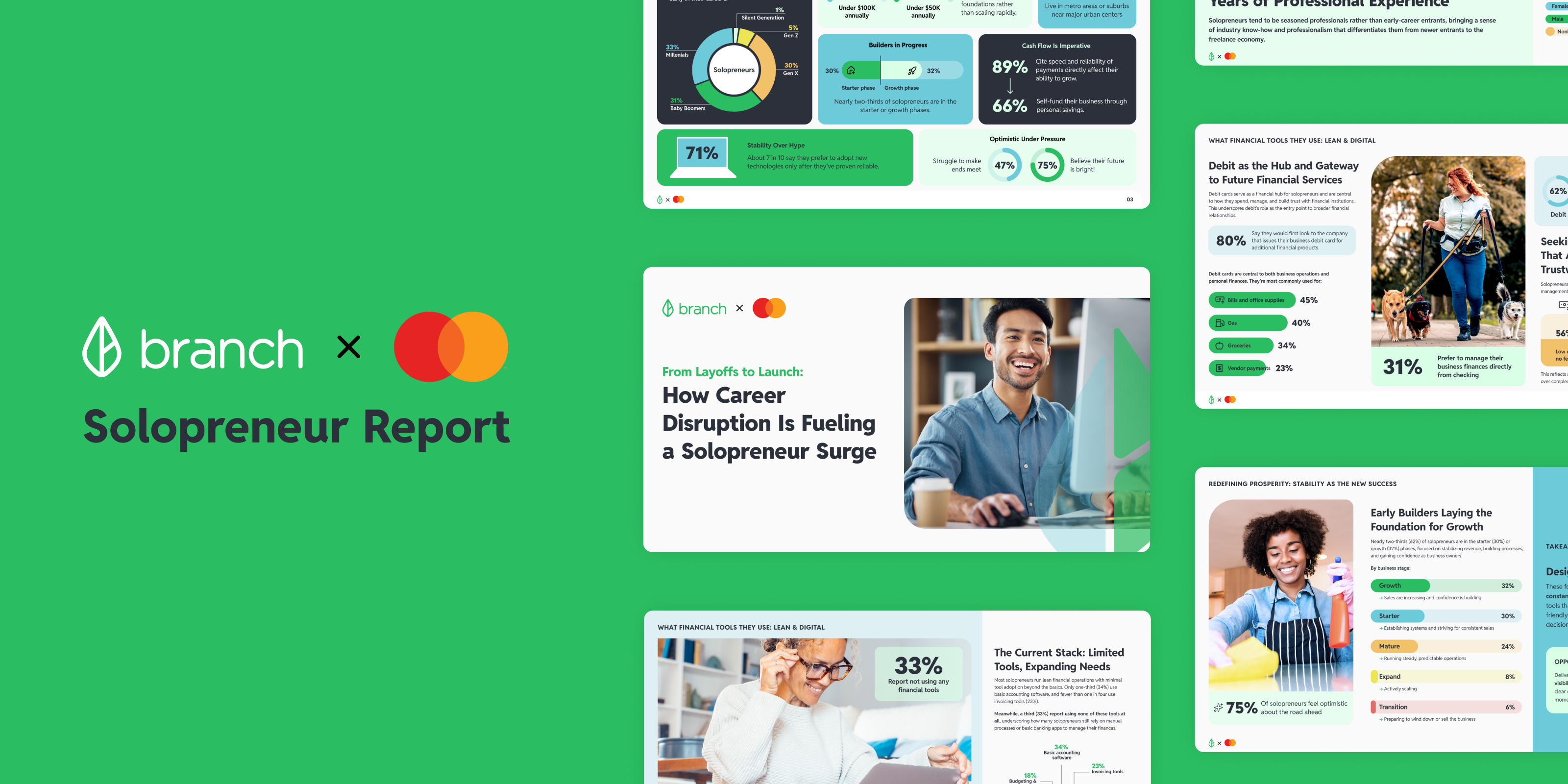
Industry Spotlight: Conversation with Serving Those Serving
We’re all about organizations that empower hourly employees, especially ones located in the Twin Cities. This Industry Spotlight combines both and highlights Serving Those Serving, a non-profit dedicated to helping the social, mental and physical welfare of the service industry based in Minneapolis and St. Paul. It’s an amazing organization that partners with the Sand Creek Employee Assistance Program (EAP) to connect workers with counseling and other workplace benefits. Branch has even become a supporting partner of the organization.
We spoke with co-founder and executive director Sarah Webster Norton and chairman of the board Adam Borgen about how they’ve applied their decades of experience in the food service industry to deliver much-needed mental health and workplace wellness services to industry workers.
Read on to learn about how the organization started, why service workers are at a higher than average risk for certain health problems, the launch of a new fund to help even more workers, and the increasing demand among restaurant operators for their services.
What led you to start Serving Those Serving?
Sarah Webster Norton: It was actually accidental. I had spent years as front of house in the restaurant industry -- managing, serving, bartending throughout the Twin Cities. A few years ago, I wrote a salty letter to city council on behalf of the restaurant industry regarding a public policy they were trying to push through. It was an open letter that I put on Facebook and the letter went viral. Everyone said “Yes, exactly!” and then I started a petition that ended up receiving 3,500 signatures. That’s when I knew that I had a platform and people were listening. It led me to start a Facebook group called Service Industry Staff for Change, which now to date has almost 9,000 members across the country.
We initially started as a political non-profit 501C4 and then in the summer of 2018, we changed our status to a 501C3 to focus the organization in this direction [of providing services to address mental health and substance abuse]. Adam was part of the original board since 2016.
Adam Borgen: I’ve been a dabbler in the service industry and was also getting into real estate. After getting involved in the restaurant community, I joined a conversation around the Minneapolis wage debate and met Sarah. Her voice went out and she handed me the megaphone. I’ve been involved since day one -- [it’s a purpose that] helps you wake up and has become a passion. We service over 1,500 workers and their families in the last two years of business.
How does Serving Those Serving deliver these benefits?
NORTON: We’ve teamed up with the Sand Creek Group based in Stillwater, MN to make its Employee Assistance Program (EAP) available to service industry employers and their employees throughout the Twin Cities. An EAP is a service provided by employers that gives access to confidential and professional coaching, consulting, and counseling for employees. Most EAPs require 3,000 or more employees to get signed up, so that’s a high threshold. For context, the largest restaurant group in the Twin Cities has only 1,100 employees.
Sand Creek is the EAP provider for 800,000 employees across the country. We connect Sand Creek with new member restaurants and also share their roster of resources for other issues common in the industry. Our flagship program offers mental health services, financial guidance, conflict-resolution, eldercare, childcare, sobriety + rehab, and other workplace wellness services. We’ve been able to gather over 1,200 employees at 33 restaurants throughout the area.
What benefits are resonating among employees?
BORGEN: On the employee side -- it’s one of the first times someone has really had their backs. The emotional labor and capital spent day in and day out -- we’re on stage. We’re performing. We’re expending our emotional energy in hospitality, and it can be exhausting.
The mix of a pandemic with social unrest and implementing and executing mandates that are constantly fluid, changing are all stressful. We’re trying to do our best. Unappreciative guests and [difficult] situations have really driven [service industry workers] to anxiety and depression, driving them to make a career change
With this mental crisis, we have had multiple calls per week and people reaching out to us. Our utilization is three times the national average and with males -- we’re reaching the back of the house and the area where that conversation hadn't been expressed or facilitated, but it is now.
NORTON: [Based on our experience and what we’re hearing from employees] Under Sand Creek’s EAP program, we have data that shows the primary presenting issue is mental health and the secondary issue is substance abuse. Even though we’re living it, we also have the numbers to prove it. Concern for others within the workplace is another top issue -- concern for colleagues’ physical and mental health at work. Grief and loss are big, relationship issues are all showing up as [major issues] in our data.
When you talk with restaurant groups, what appeals most to them about your organization?
NORTON: I think what appeals most to them is that we’re all industry insiders -- my board of directors and I are all industry insiders. We all go way back. And since I’ve worked 25 years in the restaurant industry in Minneapolis and St. Paul, I don’t have to make any cold calls which has been really wonderful. I just started with the people I knew and have gone from there. We’ve received a lot of referrals. Because we’ve lived it and know what it’s like, the program is really tailored to what people need in the industry.
For example, Sand Creek offers a 24/7 bilingual phone line so that people can call at 4am because they’ve had a horrible bar shift. Which happens all the time -- we lose our shit in the middle of the night. This 24/7 catch-all connects you with a licensed counselor at no cost, and that’s really big.
BORGEN: Our program and training are specific to the restaurant industry. Another example is a wellness referral form, which can be used in place of in conjunction with a traditional write-up. Let’s say someone is late all the time, a manager will write them up for being late. While the manager has to write [the employee] up, they provide a wellness form to share [resources and help] what's causing this. These forms are designed to be a safety net, which appeals very much to restaurant owners as well with employee retention, which can cost $3,500 to replace them.
It’s a major draw because they’ve never had access to these services before and I can write a contract for the smallest number of employees -- it doesn’t matter how small the company is. Our smallest company right now is the Little Thistle Brewing Company in Rochester, Minnesota with 13 employees, who now have access to free in-person mental health services who never would have otherwise.
How is it free for employees?
NORTON: Because we work with Sand Creek, which services 800,000 employees across the country, [we can make the service affordable.] The employer pays less than $4 a month per employee and that covers their family.
How has COVID-19 impacted the program?
NORTON: Crisis services have been more useful than ever before. Surprisingly, even though restaurants are going through such a difficult time, about 88 percent of restaurants have kept this benefit. They realize that these kinds of services help stabilize people when they're standing on quicksand. Employers are grateful to have this service in place, when employees need it most. Some restaurants are also paying an additional fee to bring counselors to their restaurants and help their teams in person.
The goal is to have a healthy, productive, thriving workforce. We’re also trying to find ways to support individual cases for restaurant workers who have lost their jobs or don’t have this benefit with our new fund, the In the Weeds Foundation (ITWF). It gives immediate mental wellness resources to service industry applicants whose employers do not offer such benefits, are recently unemployed, or are entering or exiting rehabilitation and/or incarceration. Our goal is to increase access to wellness during an especially challenging time and reintroduce mentally healthy employees back into the workforce.
How do you want to continue growing Serving Those Serving?
NORTON: We’ve had requests from all over the country to bring this program to them. We will but we can’t yet, to be cautious. This isn't widgets -- this is people's mental health. We’re being cautious and making sure we can handle the contracts we have and the number of employees are covering.
Just like the restaurant industry, you don't want to open a second restaurant location before your first is successful. We will be looking to branch out in some way this coming year but haven’t decided yet. We want to make sure employees are covered and now that our numbers from the last year have been so good from the last year we’re able to convince restaurant owners who might have been skeptical. The return on investment has been almost $6.50 on the $1, it’s a great investment.
What are restaurant owners skeptical of?
NORTON: I think it's [the cost]. I don’t think they’re skeptical of much else. I think everyone in theory is on board with the idea -- I haven’t had one person say this is a bad idea. Restaurants are in the pinch of their lives with money, which ironically makes them need our services even more. I don’t fault anyone who wants to wait and see the data on this. I also appreciate those who are willing to take on a program that’s brand new.
I think that’s really the only hesitation -- it’s just cost. Even though it’s minimal, it doesn’t matter. Every dollar counts and the profit margins are really slim. The issues are the minimum wage and sick and safe time. Restaurants are really pressed.
What’s the one thing you want people to take away from Serving Those Serving?
NORTON: That this is a dignified career. This is a valuable workforce who deserves to be treated as such. We deserve respect, care, compassion. The jobs are highly stressful.
BORGEN: Look out for the people around you. If you’re thinking of someone, call them. If you see an opportunity to compliment, do it. Reconnect and be together. The more we are together, the more human we are, the more we’re able to get through this together.
How can individuals or restaurant owners help Serving Those Serving?
NORTON: Donations are huge for us. They can go to Servingthoseserving.org and donate. Fundraisers are also big -- we have an events person who can help support that. And of course always to volunteer within our organizations. All upcoming events and fundraisers are on our Facebook page Serving Those Serving.
Continue reading
Unlock a Happier, More Productive Workforce







